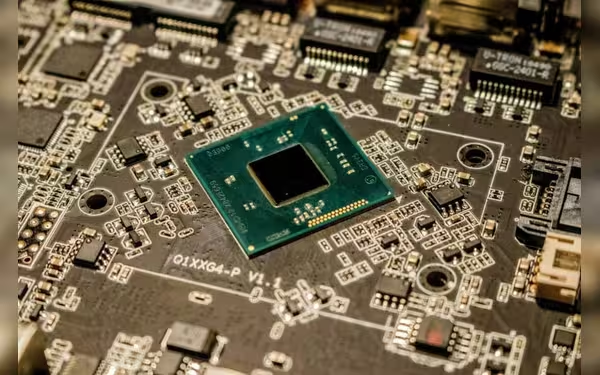Saturday, November 16, 2024 07:57 PM
US Directs TSMC to Cease Advanced Chip Exports to China
- US orders TSMC to halt advanced chip shipments to China.
- Move aims to curb China's access to advanced technology.
- TSMC's role in global semiconductor supply chain is critical.
 Image Credits: tribune.com.pk
Image Credits: tribune.com.pkThe US has ordered TSMC to stop advanced chip shipments to China, aiming to curb technology access amid rising tensions.
The ongoing technological rivalry between the United States and China has taken a significant turn with the recent decision by the U.S. Department of Commerce. In a move aimed at curbing China's access to advanced technology, the department has ordered Taiwan Semiconductor Manufacturing Company (TSMC) to halt shipments of certain sophisticated chips to China. These chips, which are 7 nanometers or more advanced in design, are crucial for powering artificial intelligence (AI) accelerators and graphics processing units (GPUs).
This decision comes on the heels of TSMC's notification to the Commerce Department regarding the discovery of one of its chips in a Huawei AI processor. This revelation raised alarms in Washington, prompting the U.S. government to take swift action to prevent further technology transfer to Chinese companies, particularly those with ties to the military or surveillance sectors.
The implications of this order are profound. TSMC, as one of the world's leading semiconductor manufacturers, plays a pivotal role in the global supply chain for advanced chips. By restricting shipments to China, the U.S. aims to maintain its technological edge and protect national security interests. This move is part of a broader strategy to limit China's access to cutting-edge technologies that could enhance its military capabilities.
For many, this situation raises questions about the future of global trade and technology collaboration. The semiconductor industry is highly interconnected, and such restrictions could lead to significant disruptions. Companies that rely on these advanced chips for their products may face challenges in sourcing components, potentially leading to delays and increased costs.
Moreover, this decision could have long-term effects on the relationship between the U.S. and China. As both nations continue to vie for technological supremacy, the stakes are higher than ever. The U.S. is not only trying to protect its own interests but also to rally allies to join in this effort to counter China's growing influence in the tech sector.
The U.S. order to TSMC to stop advanced chip shipments to China is a clear indication of the escalating tensions in the tech world. As the situation unfolds, it will be essential for stakeholders to navigate these changes carefully. The semiconductor industry is at a crossroads, and how it adapts to these new restrictions will shape the future of technology and international relations.













